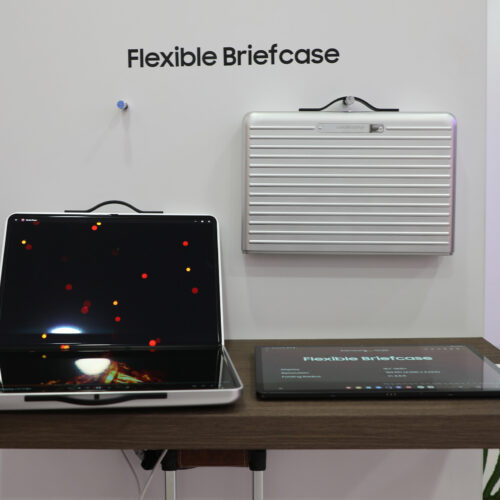The best 2-in-1 laptops and tablets for 2025
While the excitement around 2-in-1 systems has cooled a bit over the years, they’re still useful solutions for anyone who wants a device that can act as both a tablet and a traditional laptop. In tablet mode, they’re handy for jotting down notes and drawing pictures, and in their full laptop configurations, they can let you manage e-mail and write as you would with a traditional notebook. Whether you’re a student, creative or just want a more flexible setup, a 2-in-1 solution gives you the best of both worlds without having to carry multiple devices.
We've tested and reviewed some of the top 2-in-1 options out there from brands like HP, Microsoft, Samsung and Apple. Whether you’re looking for a Windows PC that can occasionally act like a tablet, or traditional slates that can be empowered with keyboard accessories, we’ve rounded up the best models to consider.
Factors to consider before buying a 2-in-1 laptop
When you’re shopping for a 2-in-1 system, there are some basic criteria to keep in mind. First off, consider the type of machine you’re looking for. Do you want something that can look like a traditional Windows laptop, but also has a screen that can twist into different orientations? (We often call these convertibles.) Or do you want a standalone tablet that works with a separate keyboard attachment? Tablet setups are typically lighter, but they’re often harder to use on your lap since they rely on kickstands or awkward cases.
Also, while some 2-in-1s offer built-in LTE or 5G connectivity, not everyone will want to pay the premium for it. An integrated cellular radio makes checking emails or replying to messages on the go far more convenient. But it also often costs more — and that’s on top of what you’ll pay for data. And as for 5G, you can hold off on it unless you live within range of a mmWave beacon. Coverage is still spotty and existing nationwide networks use the slower sub-6 technology that’s barely faster than LTE. For now, tethering a PC to your phone is still the best way to get online.
When it comes to tablet keyboards, you’ll also have to make peace with the fact that they’ll never feel as responsive as full-fledged laptop options. Their keys are shallower, and their layouts are often a bit different than typical PCs. Again, there’s a cost for portability.
See Also:
Sometimes, getting a third-party tablet keyboard might be just as good, and they’re often cheaper than first-party offerings. If you’re looking to save some money, Logitech’s Slim Folio is an affordable option for iPads, and if you don’t need your keyboard to attach to your tablet, Logitech’s K780 Multi-Device wireless keyboard is also a good pick.
While we’ve typically made sure to include a budget 2-in-1 in previous years, this time there isn’t a great choice. We would usually pick a Surface Go, but the latest model is still too expensive. Other alternatives, like cheaper Android tablets, are underpowered and don’t offer a great multitasking interface. If you want something around $500 that’s thin, lightweight and long-lasting, you’re better off this year looking at a traditional laptop (like those on our best budget PCs list). Alternatively, you might consider one of our top picks for the best Chromebooks, either as a back-to-school option or for basic tasks.
Best 2-in-1 laptops
Recent updates
February 2025: We’ve retitled this guide to “Best 2-in-1 laptops and tablets” to be more accurate, and we’ve also updated the introduction and “Factors to consider” section to refer to convertible laptops and detachable tablet options.
June 2024: We updated our top picks to include the Microsoft Surface Pro Copilot+ edition.
Nathan Ingraham contributed to this report.
This article originally appeared on Engadget at https://www.engadget.com/computing/laptops/best-2-in-1-laptops-173038508.html?src=rss
©

© Devindra Hardawar for Engadget


